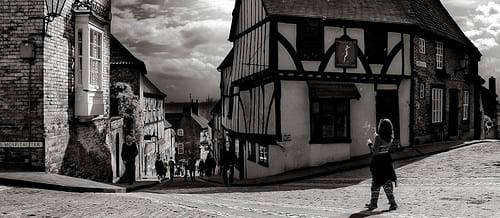Now that our piece is in its final making stages before the performance, we have been working on the final touches to help our audience experience our piece to the fullest. Once again we met with Rachel, who spoke to us about “giving generously” to our audience, a phrase which I feel really summaries what we want to do with our performance. This also contrasts with what we had previously thought we wanted to do, with the small activities in each site, which was a much more forceful treatrment of our audience. Taking the theme of generosity, we want to expand upon our coincediental moments or “orchestrated serendipity” (as Rachel said) throughout the tour, allowing our audience extra symbols and images for them to connect the audio too if they see them. So far our ideas for this have included a lost glove, teas and coffees, a lost book, a newspaper, confetti and a fundraising bucket. Taking inspiration from Fortnight, I also feel our tour is based upon “the ever-mutating process of taking on new perspectives and interacting in the city – any city – that is central to Fortnight’s intervention”. (Hui, 2011, 8) Moreover, we have also spent time on intervening the “All the world’s a stage…” speech into the audio tour, allowing for it to have more gravity within the tour and not feel like an added extra. We have found ways for each “seven age of man” to be represented symbolically and visually in the tour, hoping that our audience will come to a slow realisationthat the journey of the tour does not just mean a physical walk, but also as a metaphor for life.
- The judgement doors shall represent birth.
- “At first the infant” – Tennyson’s Cradle Song.
- “the whining school-boy” – The sound of school bells and relfective questions on childhood.
- “then the lover” – The sound of wedding bells with confetti scattered on the floor.
- “a soldier” – Castle Square, with a fundraising bucket for a war charity.
- “the justice” – Exchquer gate and the library above, Tennyson’s quote of “knowledge comes, but wisdom lingers” along with questions reflecting life up until this point as they pass through the gate.
- “the lean and slippered pantaloon” – Futher rheotrical questions about life but in the past tense.
- “second childishness and mere oblivion” – The speech itself read aloud by an elderly gentleman.
Hui, Allison. (2011) Art as an everyday intervention: shifting times, places and mobilities in the pervasive media performance project “Fortnight”. Hong Kong: Hong Kong Baptist University.
